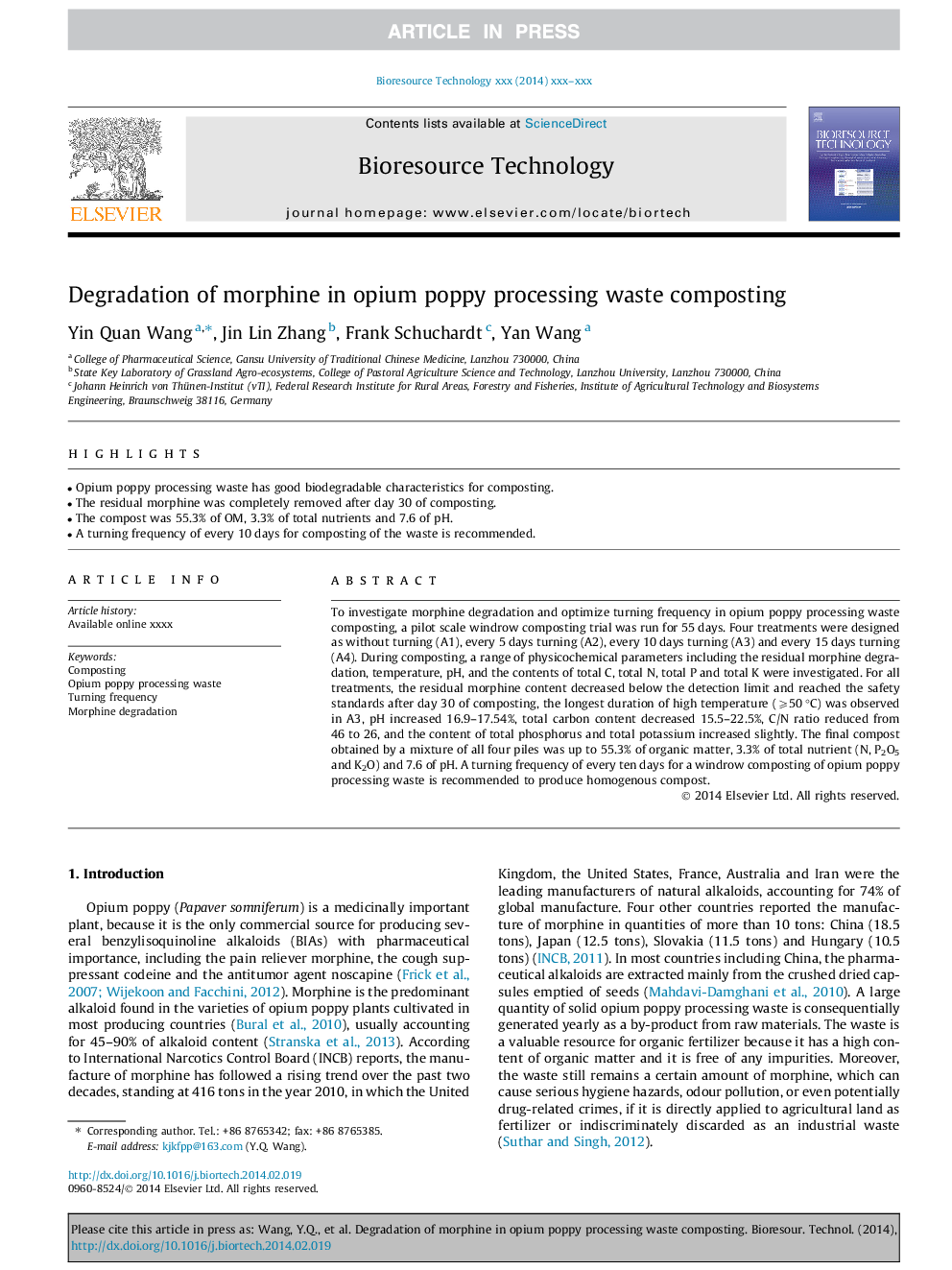| Article ID | Journal | Published Year | Pages | File Type |
|---|---|---|---|---|
| 680591 | Bioresource Technology | 2014 | 5 Pages |
Abstract
To investigate morphine degradation and optimize turning frequency in opium poppy processing waste composting, a pilot scale windrow composting trial was run for 55 days. Four treatments were designed as without turning (A1), every 5 days turning (A2), every 10 days turning (A3) and every 15 days turning (A4). During composting, a range of physicochemical parameters including the residual morphine degradation, temperature, pH, and the contents of total C, total N, total P and total K were investigated. For all treatments, the residual morphine content decreased below the detection limit and reached the safety standards after day 30 of composting, the longest duration of high temperature (⩾50 °C) was observed in A3, pH increased 16.9-17.54%, total carbon content decreased 15.5-22.5%, C/N ratio reduced from 46 to 26, and the content of total phosphorus and total potassium increased slightly. The final compost obtained by a mixture of all four piles was up to 55.3% of organic matter, 3.3% of total nutrient (N, P2O5 and K2O) and 7.6 of pH. A turning frequency of every ten days for a windrow composting of opium poppy processing waste is recommended to produce homogenous compost.
Keywords
Related Topics
Physical Sciences and Engineering
Chemical Engineering
Process Chemistry and Technology
Authors
Yin Quan Wang, Jin Lin Zhang, Frank Schuchardt, Yan Wang,
